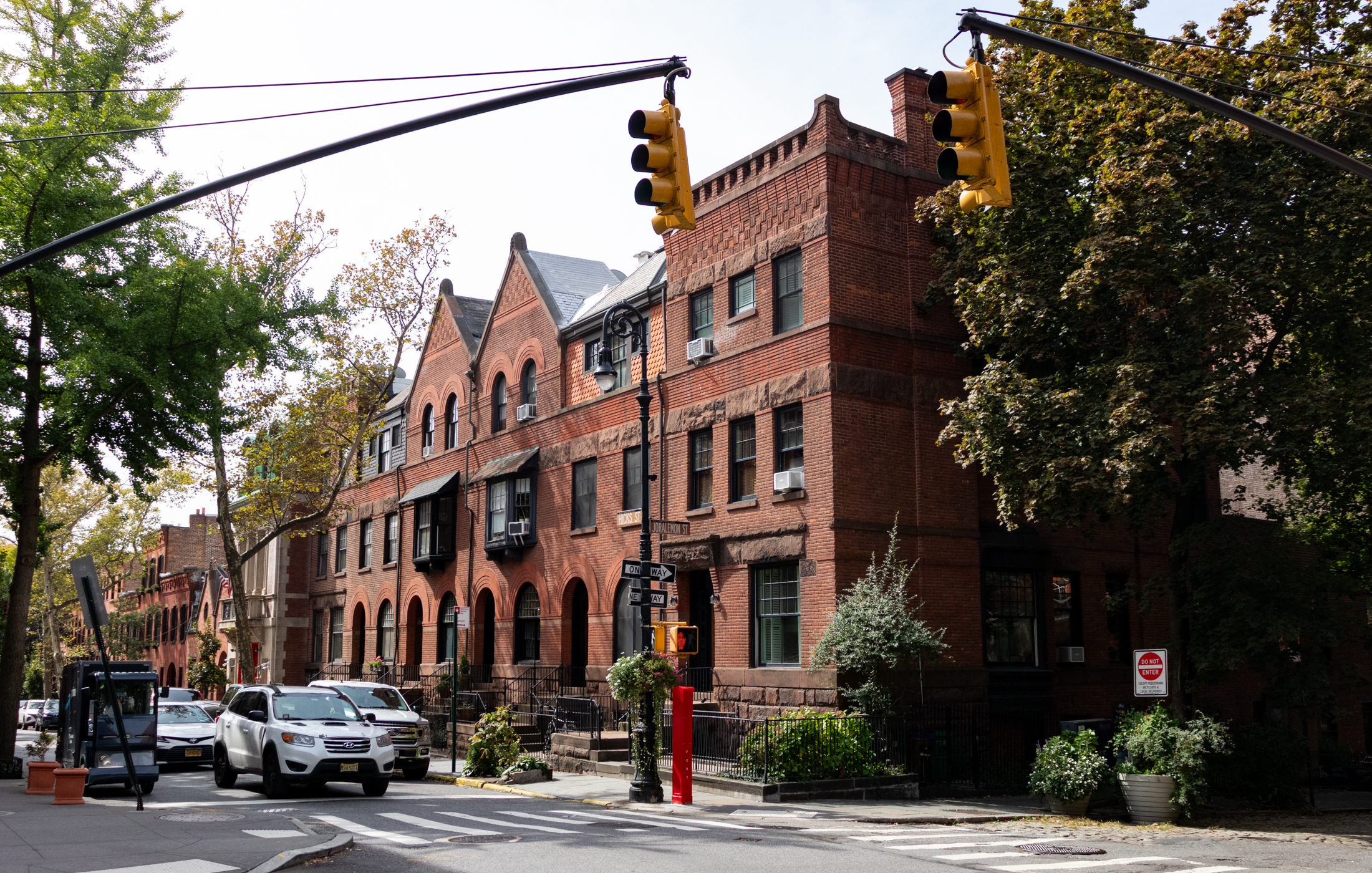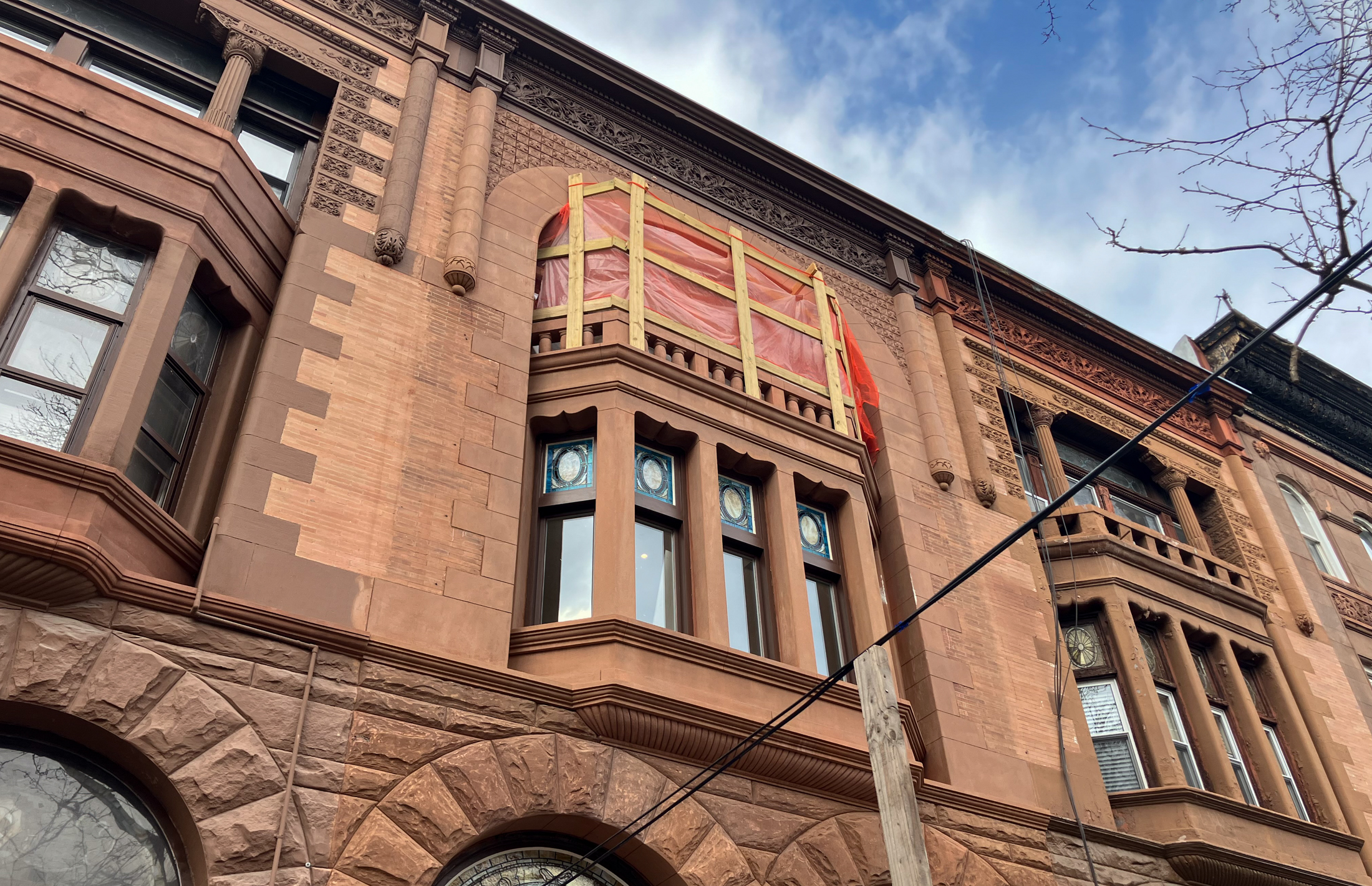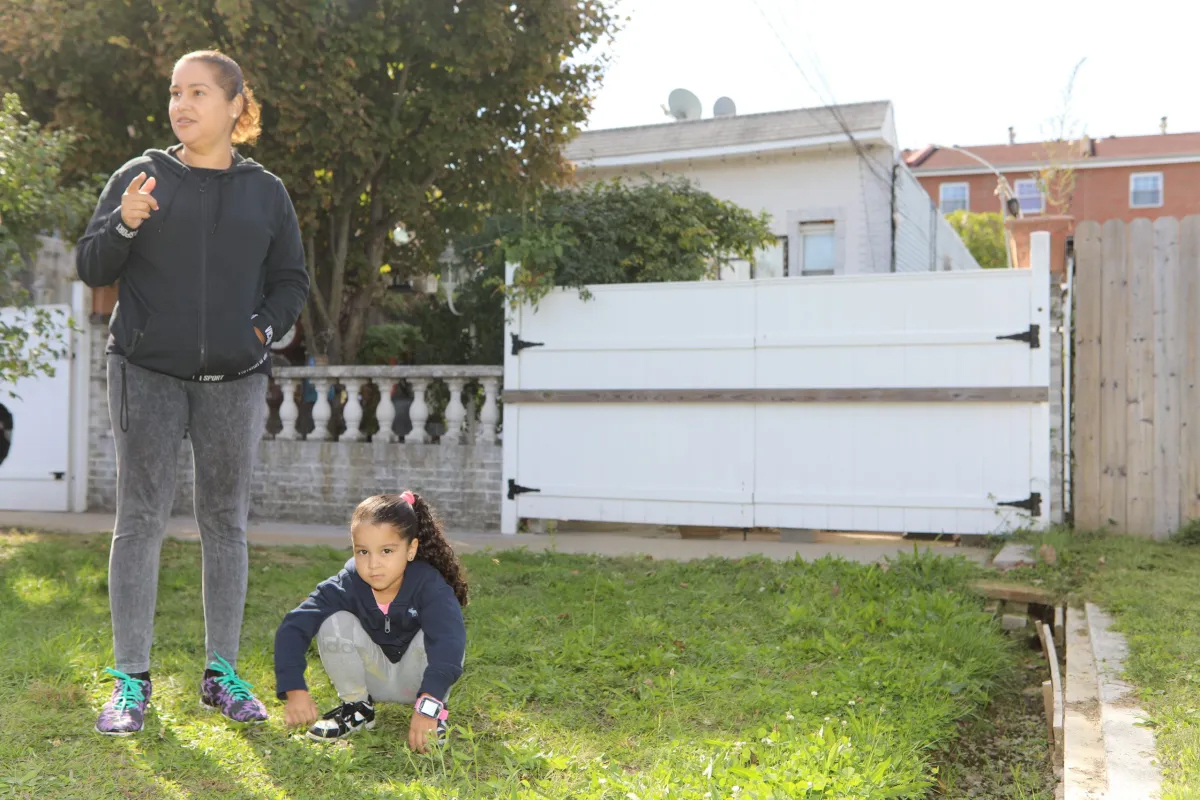It's Tough Out There for a Middle-Class New Yorker
Income levels that would enable a very comfortable lifestyle in other locales barely suffice to provide the basics in New York City, says the the Center for an Urban Future in a new report that merely provides data to back up what all city residents already new. The group estimates that the same quality of…


Income levels that would enable a very comfortable lifestyle in other locales barely suffice to provide the basics in New York City, says the the Center for an Urban Future in a new report that merely provides data to back up what all city residents already new. The group estimates that the same quality of life that costs $50,000 a year in Houston will run you $123,322 in the Big Apple; San Francisco is a distant second at $95,489 with LA at $80,583 and Philadelphia at $69,196. In addition, many New Yorkers put up with commutes that double the national average of 25 minutes. One Brooklyn Bridge Park even gets an unnamed reference: “If it wasn’t already clear that the cost of living in New York City is greatly out-of-whack with the rest of the country, it certainly became apparent in early 2008 when a new condo development in Brooklyn Heights began selling individual parking spaces—not apartments, parking spaces—for as much as $280,000.” So it’s no surprise that the report finds that many people have been giving up on New York. In fact, twice as many people with bachelor’s degrees left New York in 2005-2006 than in the prior two-year period. So what’s to do: Among other recommendations, the report suggests diversifying the economy, focus on basic infrastructure and quality of life issues rather than building flashy new projects and increase housing stock that is affordable to the middle class.





Indeed, the comparison of NY and SF is wrong. If this theoretical single person owns their own place instead of rents, they would need an income of at least $200,000 to buy a one-bedroom condo in SF in any neighborhood except Hunter’s Point. (Everything starts at $750,000 and yes it’s bigger and better but it’s not cheaper than $750,000.) In fact, on the low end, for a single person, owned housing is much more affordable in NYC than in SF. Whereas rents and food are much more expensive.
If they truly want to compare Houston with New York, they’d have to compare the cost of owning a single family home of equal square feet, including the cost of insurance and garaging for a car. Then it would be obvious that you have to be a billionaire to live a “middle class” life in New York City.
I know an exception that proves the rule: Friends who bought a perfectly intact single-family Victorian on Striver’s Row in Harlem with a back alley, garden, and garage some years ago for less than $500,000. It’s like they’re living on their own suburban paradise island or something in the middle of the city. Their lives are completely unlike anyone else’s I know. (They have room for an extensive 1980s record collection!) I think they do send their kids to private school, though, so there’s an expense.
” Seriously, it’s a polluted, steaming dump, which is why no one wants to live there.”
It may be a polluted, steaming dump, but it is a polluted, steaming dump with 2.2 million people, so evidently *somebody* wants to live there. Not me, mind you.
Sam says: “New York looks like it may be starting to be over.”
How can New York be “over”? Have I been living in a giant fashion trend for the past 2 decades? If so, how embarassing! Apparently, my city is sooooo last year. WTF.
I think it’s to our credit at New Yorkers, that many of us are able to not only survive here, but thrive, in spite of the fact that we don’t make anywhere near that magic $123 thou number. What is their criteria for comfortable living? Two big cars in the garage/street, a bathroom for every bedroom, a certain amount of square footage in that bedroom, nights out at a restaurant, what?
I wouldn’t use Houston as a baseline, or anywhere in Texas. From what I know of Houston, your air conditioning bill will take up at least $30k per annum. From my dealings with home furnishings businesses in Texas, everything they consider a necessity for civilized life is bigger, grander, more wasteful and more expensive than is necessary in other places. Thank goodness we would need so much for the same. Maybe it will force people to begin to live in a much smaller, more efficient and less materialistic world.
Having been born and raised in Houston, I can assure you that no reduction in cost of living could draw me back to that hell hole. Seriously, it’s a polluted, steaming dump, which is why no one wants to live there.
And, as a public school teacher in Houston only 10 years ago, I earned $24,000 a year. Sure my 1 bedroom apartment was only $375 a month, but that ws a big piece of my takehome pay.
rob- first of all, you’re overly touchy and out of line. Second- I’ve met far too many people like you and you’re tiresome.
I’m here because I was born and raised here, my family’s here. NYC is what I think when someone says “home.” Doesn’t mean I might not want to live somewheres else- I did for awhile- and it is certainly tough. But the fashionista events, the clubs and restaurants- doesn’t mean all that much to me. The art and museums and family and friends- mean everything. What I do miss is the grit and Noo Yawker mindset- a lot has changed.
quote:
and to run into Amy Sedaris on the street and have her ask you to go grab a drink with her
i love her. ive run into her on the street too and she seems to eschew people. i dont for a second believe she asked you out for a drink 11217…
*r*
You know, it has nothing to do with how much anyone loves New York.
And people who have fixed housing costs (own or rent stabilized/controlled) have a completely different equation than those of us who rent at market rate and/or are looking to buy.
Those of us whose housing costs are at or near market rate have been acutely aware of how much more expensive things have become in the last few years. It has seemed absurd to me at times.
And no matter how much we love NYC, we have to balance that against living space, commuting times, and quality of life in the neighborhoods we can afford.
For 80% of the people, it’s not about neighborhood pride or coolness factor. It’s about day-to-day living and how to get the most value for their money.